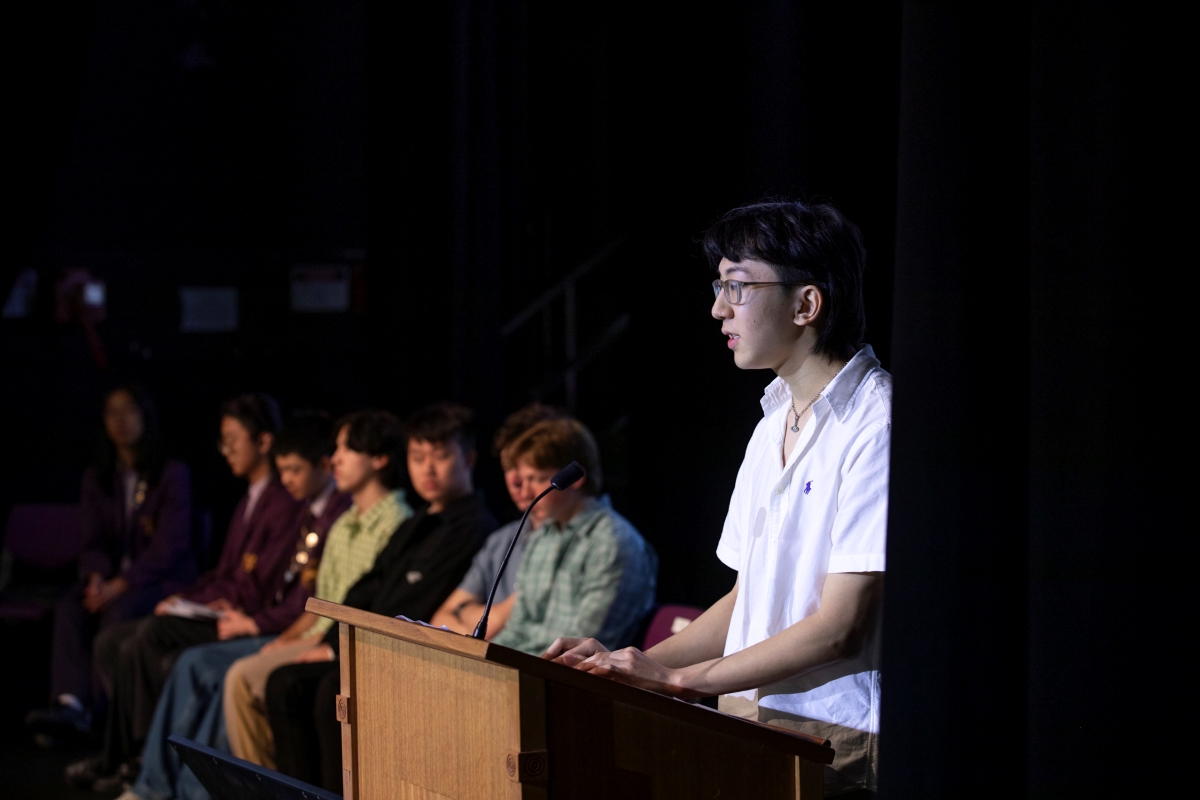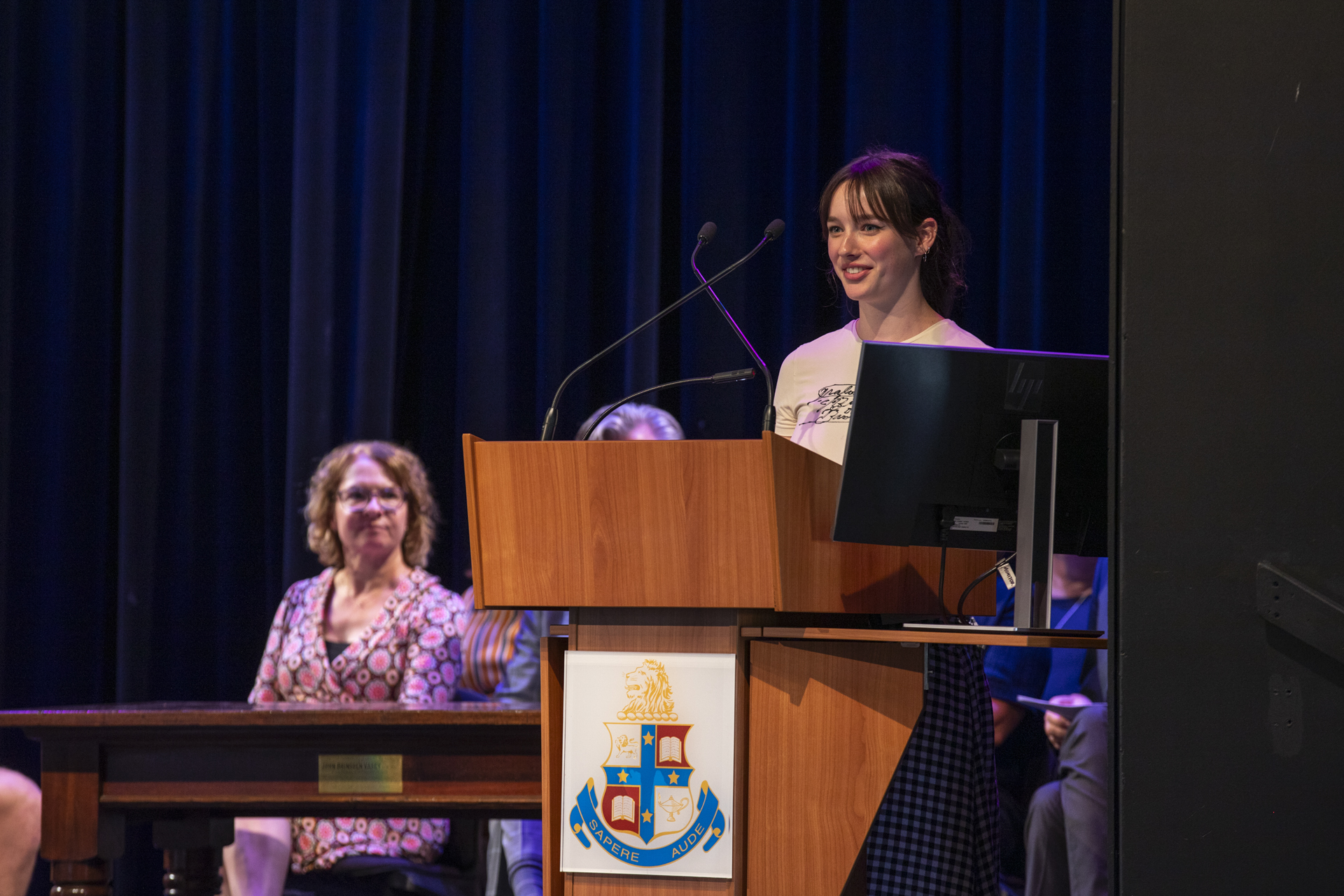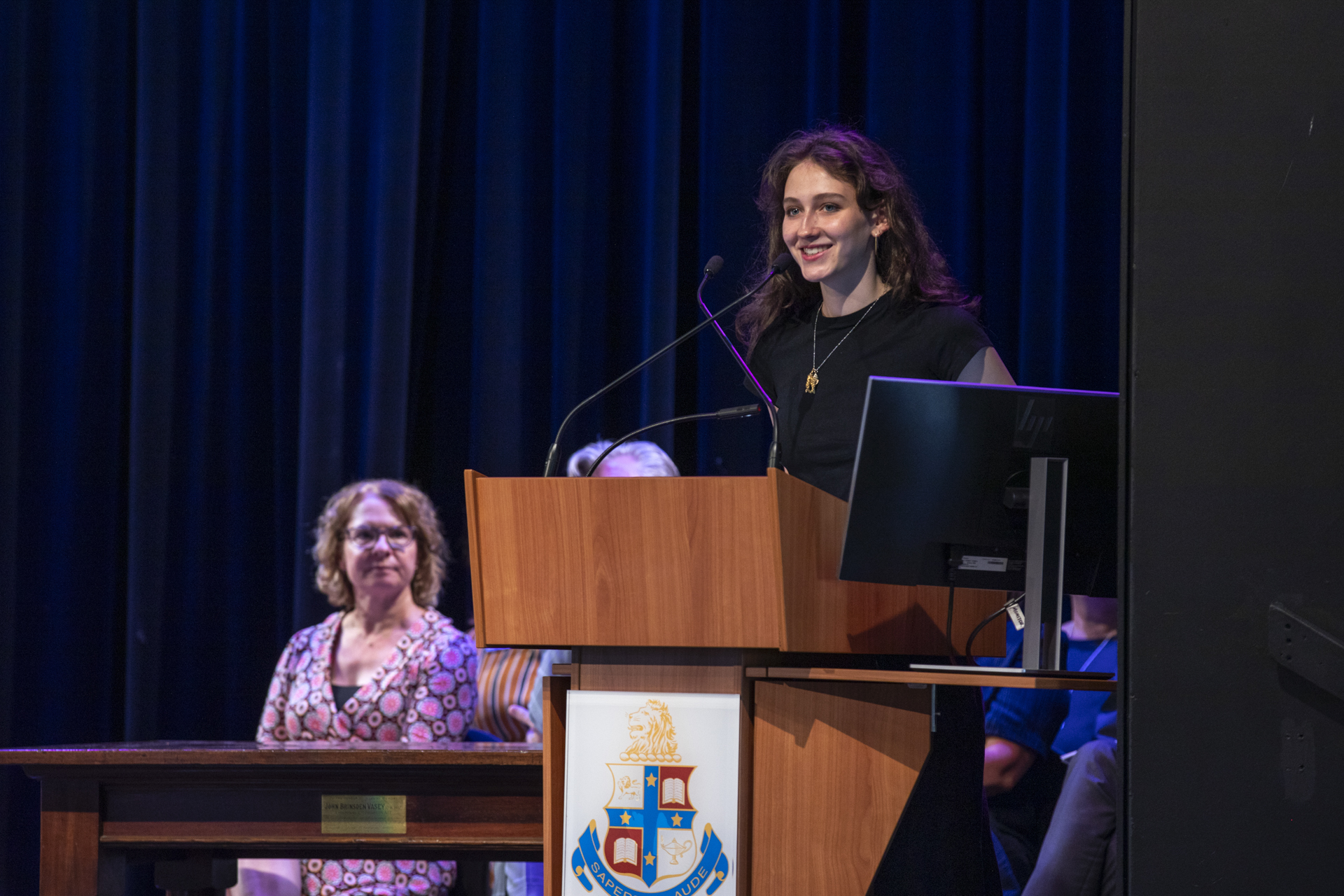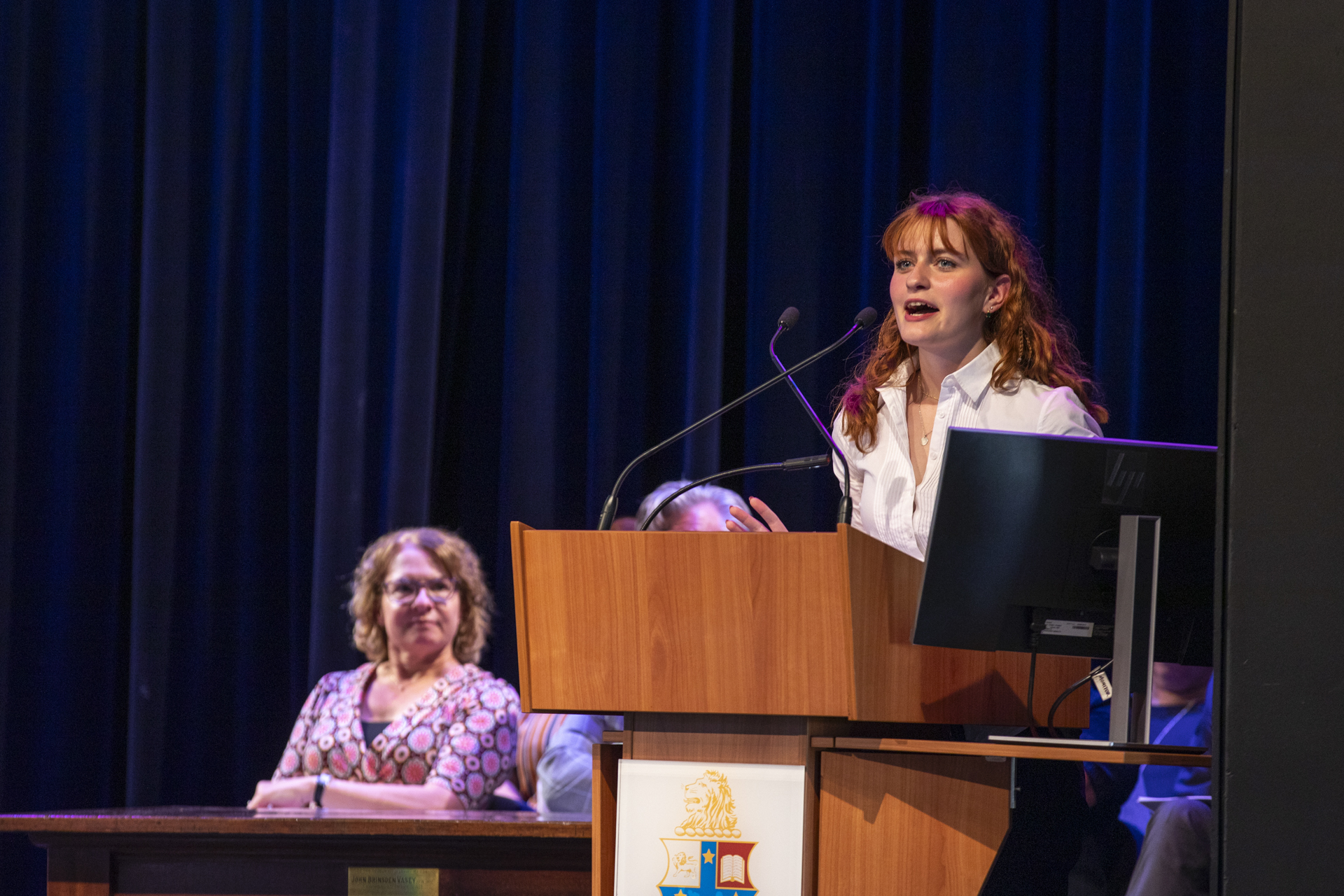Our Class of 2023 Scholars and Duces returned to the College to share their experiences and offer advice and key learnings to help current Years 10 - 12 students navigate their final years of schooling. Read an extract below.
Glen Waverley

Hunter Xu
Throughout the years, I’ve experimented with numerous ways of studying – from well-known techniques such as flash cards, to some more questionable methods such as trying to predict my final exam questions. Everyone studies differently, but these are some of the tips that helped me the most.
Firstly, I can’t stress enough the importance of knowing the assessment criteria inside out. It's important to familiarise yourself with the criteria for a particular essay or Internal Assessment (IA)so that you are addressing the exact expectations the examiners have set out. Secondly, take advantage of your syllabus or study design. The syllabus dot points essentially detail everything you can be examined on. When revising a syllabus dot point, think about how that piece of content can be examined and focus your study around that.
Hard work plays a significant role in academic success, but equally, excessive hard work without proper self-care can lead to burnout. It’s therefore important to strike a balance between studying smart and working hard while allocating time to yourself, socialising with friends and trying new experiences.
Something that I’ve heard when sitting through these speeches in past assemblies is the importance and power of empathy. Your friends and peers are your support network and are going through similar experiences and challenges as you, so show empathy and looks for ways to work together to navigate the challenges of Year 12.
To all of my Year 12 teachers, thank you for working tirelessly to teach us the syllabus content, and for dedicating so much time to providing us with feedback on our assignments and IAs. A special thanks also to my mum and dad. They never pressured me to study, and I think that’s why I was able to achieve my goals, as they were goals that I set and wanted for myself.
I wish all Senior School students the best of luck for the year ahead. You all have the power to define and change your future, and live meaningful and impactful lives.

Will Kennedy
If I was in your position, based on my experience of Year 12, this is what I would do...
For Year 10 and 11 students, take advantage of the fact that your marks aren’t really that important yet. Figure out which ways of learning and studying work best for you and choose subjects you are actually interested in, not those you think will give you a better mark or that your friends are doing.
Year 12 is not really that hard at all. Ok, some of the content may be hard, but you have so many resources available and get so many free periods, you can get a lot of work done at school. The problem is SACs! When I had a SAC to study for, I ignored everything else, then caught up as soon as possible afterwards.
In my opinion, you can only do so much study, but to get by, you have to be efficient. This means keeping up with homework, listening properly in class, and spending some time at night going over what you covered that day. Then doing something to relax or that makes you happy is completely justified.
My advice is try not to worry too much as it doesn’t actually get you anywhere. If something is bothering you, it’s either out of your control, so there is not point even thinking about it, or it’s within your control, which means you can do something about it. Mr Kenworthy used to tell us to unload the dishwasher when we got home, and as much as I despise doing that, I agree with the principle which is to appreciate your friends and family, as they are on your side.
While technically you’re competing against the people in your class (you’re not, you’re just being sorted against them), it is possible for your whole class to succeed, and it’s much more likely to happen if you help your friends along the way.
I am enormously thankful for the dedication of my teachers, and I hope you’re all as lucky as I was to have a teacher in every subject you can depend on.
St Kilda Road

Evie Conron
One of the most important things I learnt during school was the importance of taking responsibility for your educational experience. Recognise that you are the one who needs to be driving your learning. The best tip I have in this regard is to meet with your teachers one-on-one. Being able to receive individual feedback and ask questions is just so valuable.
It’s also important to have a support system in place, because your educational journey is not a linear process – before, during or after school ends. When you encounter bumps in the road, it’s important that you have people you can turn to for advice. Senior School can be stressful and uncomfortable, and I recognise it can be daunting to reach out and seek extra support, particularly if you’re used to handling things on your own. However, I'd like to emphasise that turning to people around you who’ve had more experience and can contribute a different perspective doesn’t detract from your independence, but shows that you recognise your limitations.

Cecilia Henry Chanen
My Wesley experience has shaped me as a person. The music and performing arts programs at Wesley ignited my passions, especially my love of jazz. Yiramalay, Clunes and the Year 12 French trip to New Caledonia gave me unique experiences of the world.
Year 12 for me commenced with a lot of change and unfamiliarity. I returned to Melbourne from my 6-week language exchange in France, which was 100% worth the effort, and commenced Year 12 VCE, having switched courses from Year 11 IB DP. I was completely terrified that I wouldn’t be able to keep up, not having completed VCE in Year 11. I didn’t enjoy some of my Year 11 IB subjects and made the decision to specialise in subjects based on my interests, which were offered in the VCE. I want to thank Dr Whitelaw and Mr Jones for their support in making this change.
As someone who has experienced both the IB and VCE courses, I can safely say that neither course is harder nor better, they are just different. Choose what works for you! The best piece of wisdom that I can pass on to you is to study subjects that you will enjoy. Play to your strengths. I found a passion in my subjects which led to me expanding my interests and becoming more deeply involved in my learning.

Marlo Stephenson
I began year 12 worried about all the extracurricular activities I was doing and how to maintain a balance. Having completed the year, I can say that continuing extracurricular activities proved useful, as it let me take breaks from study while still being productive. It helped me create a ‘downtime’ space without a sense of guilt, because I was doing things I love, socialising and thinking about something other than my SACs or assessments.
Personally, I feel like there’s this misconception that to do well, you have to be the ‘perfect’ Year 12 student. The reality is that no one ever lives up to that expectation. The more you think about it, the more guilt or panic becomes associated with the workload. It’s okay to be stressed or sad or happy or excited by things in and around Year 12, so be kind to yourself. Take breaks or just have that sleep in. The more you push yourself, the harder it becomes to self-regulate and understand your needs. That’s not to say don’t work hard, but remember, you are only human and that there’s so much more ahead of you, no matter what score you get.
